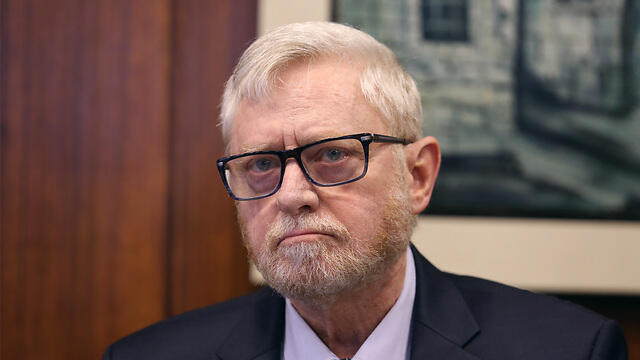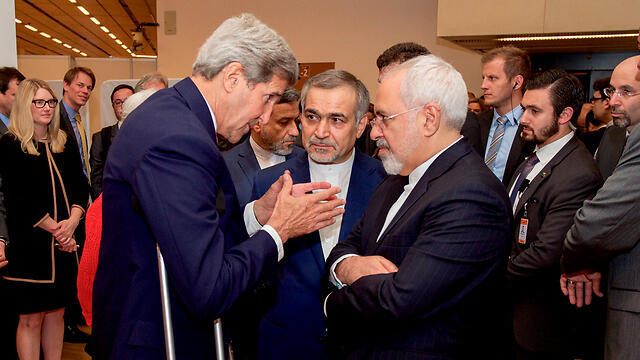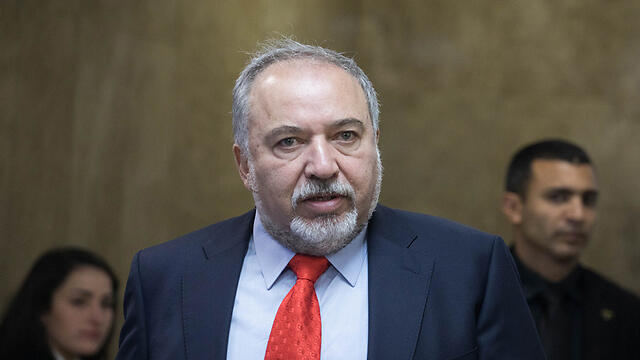Getting your Trinity Audio player ready...
A new report by State Comptroller Yosef Shapira published Wednesday afternoon criticized the Defense Ministry's spokesmanship department, citing several examples of it overstepping its boundaries or providing inaccurate information, including a 2016 statement comparing the Iranian nuclear deal to the 1938 Munich Agreement.
The ministry's statement, which attacked the administration of former US President Barack Obama, was later followed by another statement apologizing for the comparison, prompting the Prime Minister's Office to carry out "damage control vis-à-vis the White House."
State Comptroller Shapira said in his report that the statement's content and character were not "within the purview of the ministry's professional activities."
3 View gallery


State Comptroller Shapira's report criticized the Defense Ministry's spokesmanship department
(צילום: גיל יוחנן)
The report further revealed that the ministry avowed the statement was a "political comment from Defense Minister Avigdor Lieberman," and added its content was irregular—and therefore not indicative of the department's regular operations.
"Rules prevalent in diplomatic discourse were taken into account when drafting the statement," the ministry added. "In addition, the statement or its content did not exceed instructions or rules pertaining to separation between the ministry's spokesmanship and the minister's media adviser."
Shapira nevertheless notified the ministry's director-general and spokesperson that even if the statement was irregular and not indicative of the norm, its content and character must still be in keeping with a principle handed down by the civil service commissioner regarding said separation.
3 View gallery


President Obama's Secretary of State John Kerry (L) and Iranian Foreign Minister Mohammad Javad Zarif (R). The Defense Ministry's statement compared the administration's nuclear deal to the 1938 Munich Agreement
(צילום: רויטרס)
The aforementioned comment was not the only one scrutinized in the state comptroller's report, however. In December 2016, Shapira found, two statements were released to the media regarding information obtained by the Defense Ministry pertaining to Iran's alleged share in the German ThyssenKrupp corporation, from which the ministry procured submarines and other vessels.
Responding to a query directed to the ministry, its spokesmanship department said the ministry was unfamiliar with any such Iranian involvement with the corporation. Several days later, however, after examining the matter further, Defense Minister Lieberman noted that defense officials knew of an Iranian investment firm's share in the company as far back as 2004, which led to the ministry being criticized.
Information the ministry's communications division delivers to media outlets, Shapira underlined, was then presented to the public as the official positions of the Defense Ministry and those heading it, and therefore any inaccuracies may tarnish—however temporarily and specifically—the ministry's image and the degree of public trust therein, as media coverage in this particular instance clearly showed.
3 View gallery


Defense Minister Lieberman contradicted the ministry's own statement on Iranian involvement with ThyssenKrupp
(צילום: הדס פרוש/פלאש90)
Another incident brought up by the report occurred in December 2014, when the ministry's spokesmanship put out a statement regarding a test carried out by the Defense Ministry's Administration for the Development of Weapons and Technological Infrastructure (Maf'at) in conjunction with Israel Aerospace Industries.
In an intra-ministry discussion held a month later, dealing with the spokesmanship aspects of the experiment, the head of Maf'at noted that the statement put out by the ministry led to "harsh criticism" against the ministry in media outlets, because it said the test was successful, while in reality it was not.
State Comptroller Shapira once again noted that inaccuracies in the department's statements, doubly so when dealing with sensitive content—as the December 2014 statement had—may once again tarnish—however temporarily and specifically—the ministry's image and the degree of public trust therein.
Fear of loss of knowledge, waste of resources in training
Shapira also found deficiencies in the spokesmanship department's personnel make-up, with half of its employees being temporary, transient workers. The current state of affairs, the state comptroller warned, could damage the department's stability and positioning, to loss of organizational knowledge and to a waste of resources in repeated training of constantly changing employees.
His audit, Shapira said, found deficiencies—some of which were grave—in the area of enlisting freelance advisers for the department. "The department employs a freelance adviser whose work correlates or is identical to the job description of a regular employee within the department," the report said.
"Moreover, the department has employed a freelance adviser for more than three years who fully spearheaded the area of spokesmanship during emergencies and exercises—a field that is a core area of the Defense Ministry's work," the report concluded.
Failures were also found in the process of manning the position of spokesperson, with Shapira writing that the ministry overstepped procedures, instructions and rules time and again, adding that former director-general Udi Shani twice selected acting spokespeople independently.

